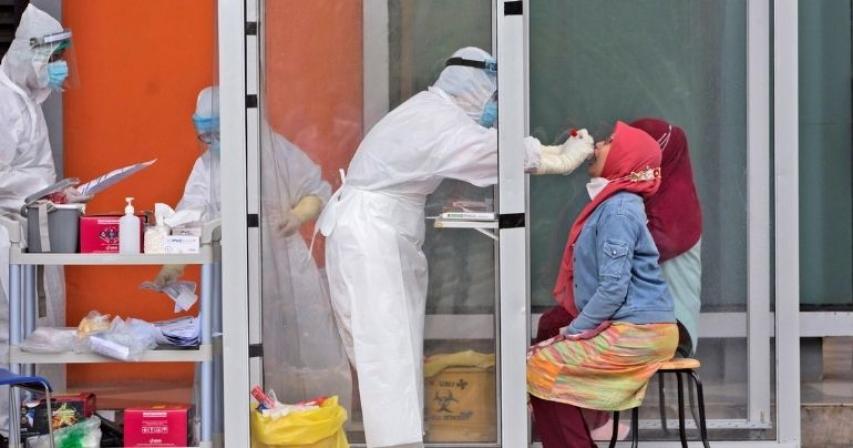Covid-19: Indonesia announces lockdown in Java and Bali as cases surge
- 4 years ago

Indonesia has announced a lockdown on its main island Java, as well as the tourism destination of Bali.
The announcement by President Joko Widodo comes as the country battles multiple outbreaks and an alarming spike in Covid cases.
Indonesia recently recorded two million Covid cases, attributed to increased holiday travel and the Delta variant.
The lockdown will last two weeks and aims to reduce the number of cases to below 10,000 a day.
The country is currently recording more than 20,000 new cases each day.
However, experts warn that the case numbers are potentially much higher, because of severely inadequate testing outside Jakarta.
Under the new rules, all staff working for non-essential businesses will have to work from home, and distance learning will be implemented across schools.
Malls, places of worship and public leisure facilities like parks will also be shut, with dining-in banned.
Businesses including those in the health, security and energy industries have been deemed critical and will be allowed to run at 100% capacity, which means all employees can go to work. Others like financial services, which have been deemed essential, can run at 50% capacity.
Indonesia has had the worst Covid outbreak in South East Asia, with about 2.1 million positive cases and 57,000 deaths so far.
The International Federation of Red Cross and Red Crescent Societies said on Tuesday that the country was "teetering on the edge of a Covid-19 catastrophe".
Sudirman Said, secretary-general of the Indonesian Red Cross said "hospitals were full to the brim and oxygen supplies critically low", and that their hospital in Bogor, West Java, was "overflowing".
"We have set up emergency tents at the hospital to accommodate more patients, with many travelling for hours so they can access vital medical care," he said.
Last month, authorities banned domestic travel across the sprawling archipelago at the end of Ramadan, in an attempt to curb what is known as "mudik" - the practice of migrant workers travelling back to their hometowns to celebrate Eid with their families. But many flouted the rules.
There have also been rising concerns that the spike in cases is due to the more transmissible Delta variant, which was first detected in late May in the Kudus region of Java.
Local authorities said this month that more than 350 health workers who were already vaccinated had caught Covid.
The Indonesian Medical Association has said so far 949 health workers have died from Covid-19.
Data checks by BBC Indonesian found that of these deaths, at least 20 doctors and 10 nurses had been fully vaccinated with the Sinovac vaccine, CoronaVac.
Indonesia has mainly relied on the Chinese vaccine in its innoculation drive, which is ramping up this week. Only about 13 million people out of its 270 million population have been fully vaccinated so far.
Several epidemiologists told BBC Indonesian that they believed a third booster dose may be needed for health workers, given the presence of the Delta variant as well as the efficacy of CoronaVac, which measured 65% in Indonesian trials earlier this year.
A more recent government study however found that it was 98% effective in preventing death and 96% effective in preventing hospitalisation among medical workers.
The outbreaks have concerned many citizens, such as 40-year-old Malika who lives in the capital Jakarta. She told BBC Indonesian she does not permit her child to leave the house.
"I'm very worried, especially now. I heard that there are so many children infected by Covid-19 in Jakarta," she said. "In the past I didn't give it too much thought ... But now I couldn't say such a thing."
Source: BBC
Comments